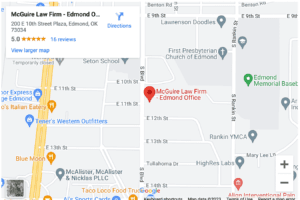Chest Injury

A chest injury can vary from minor bruises to life-threatening heart or lung damage. You should consider having a doctor examine you after you experience any kind of chest pain after an accident. In addition to physical injuries caused by the accident, the stress could cause heart issues.
Any type of accident could result in a chest injury. Even an accident where you only bump your chest could dislocate a rib or tear soft tissue.
Here is some information about chest injuries and the compensation you can seek for them.
How Do Chest Injuries Happen?
A chest injury usually results from chest trauma. Chest trauma can take a few different forms:
A Penetrating Injury
A penetrating injury happens when a foreign object hits the chest and penetrates the skin. The ribs and sternum protect the chest. Oftentimes, a penetrating object hits a rib and penetrates no further.
But an object can penetrate between the ribs. If an object goes between the ribs, it can cause serious injuries and complications as it enters the chest cavity and the organs inside the ribcage.
A Blunt Force Injury
A blunt force injury occurs when a force strikes the chest without penetrating the skin. A seat belt injury during a car accident is an example of blunt force trauma.
Blunt forces usually cause bruising. They can also fracture or dislocate bones. If a blunt force injury fractures a rib, it can cause penetrating injuries as the rib tears into the organs and tissue inside the chest cavity.
A Pressure Injury
Pressure injuries, also known as blast injuries, result from the pressure wave caused by an explosion. Outside of a war zone, these injuries usually result from workplace accidents. For example, workers in demolition, mining, and construction sometimes get injured in explosions.
Pressure injuries can affect the lungs. The explosion can damage your lungs through the pressure differential between the air in your lungs and the blast wave.
What Are Some Examples of Chest Injuries?
The severity of damage caused by chest trauma will vary based on the forces involved. Some common examples of chest injuries include:
Broken or Dislocated Ribs
The uppermost ribs in the chest are attached to your sternum or breastbone. The lower ribs connect to the sternum through cartilage or float without any attachment.
Chest trauma can fracture ribs. A fractured rib can cause severe pain. It can also lead to complications like a punctured lung or pericardium.
Chest trauma can also dislocate ribs. A dislocated rib happens when a force on the rib causes cartilage to stretch or tear. The rib slips out of place, which can cause pain and limit motion.
Collapsed Lung
A collapsed lung, or pneumothorax, happens when a wound in the chest wall allows air into the chest cavity. The pressure of the air prevents the lungs from expanding.
In some cases, a collapsed lung can cause death by suffocation. Symptoms of a collapsed lung include:
- Chest pain
- Shortness of breath
- Increased heart rate
To treat a collapsed lung, doctors need to suck the air out of the chest cavity and close the chest wound.
Cardiac Tamponade
A sac protects the heart from trauma and infection. This sac, called the pericardium, can get torn or punctured by a chest injury. If the sac fills with fluid or blood, the pressure on the heart can cause it to stop beating. A cardiac tamponade requires emergency treatment to avoid death.
Cardiac tamponade can also happen when chest trauma causes the heart to tear and leak blood into the pericardium. If a cardiac tamponade happens due to a leaking heart, the injury often causes death.
Flail Chest
When multiple ribs break in multiple pieces, you can have a section of your chest that is not anchored to your skeleton. As a result, that section of your chest moves independently of your ribs.
Specifically, the section of broken ribs will move in the opposite direction of the rest of your chest. As you inhale, the flail section will move inward. As you exhale, the flail section will move outward.
Doctors usually treat flail chest with supportive care like supplemental oxygen and pain killers. Doctors rarely operate to repair the ribs, simply because rib repair surgery can lead to pneumonia.
Ruptured Aorta
Severe trauma can cause the aorta to tear. The aorta is the main artery that carries blood from your heart to your body. When it ruptures, you could bleed to death in a matter of minutes.
What Are the Risk Factors for a Chest Injury?
Some accidents have a higher risk of a chest injury, including:
Car Accidents
You could suffer a serious chest injury in a car accident if you do not wear a seat belt, your chest could hit the steering wheel, dashboard, or side door. You could also suffer a penetrating chest injury if you get ejected from the vehicle.
But even if you wear a seat belt, the impact of the seat belt on your chest could break ribs and lead to complications like cardiac tamponade.
Truck Accidents
Truck accidents can involve 40 times more energy than car accidents. These accidents cause much more severe injuries, including seat belt-related chest injuries. You also have a much higher risk of having your chest crushed as the truck smashes into your passenger compartment.
Workplace Accidents
Workplaces have many risks that could cause a chest injury. You could get smashed by a falling object, run over by a vehicle, or caught in a machine.
Chest injuries can also happen when you fall from a height. Falls can cause penetrating or blunt force injuries to your chest.
Workers can even get caught in explosions at a worksite, leading to a blast injury to the chest.
What Compensation Can I Seek for Chest Injuries?
The compensation you can get for a chest injury will depend on the severity of your injury. Injury compensation should account for all of your medical expenses and lost income. More severe injuries will require more expensive treatment and will likely cause you to miss more time from work.
Severe chest injuries could also diminish your quality of life. Pain and suffering damages compensate you for the non-financial impact of your injuries. A chest injury could cause pain and mental anguish. It could also force you to give up the activities you enjoy.
Contact an Oklahoma City Personal Injury Lawyer for Help
To discuss the compensation you can seek for your chest injury, contact our law firm McGuire Law Firm to schedule a free consultation. We’re standing by to discuss your claim.

